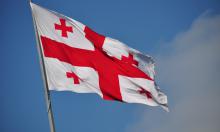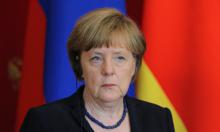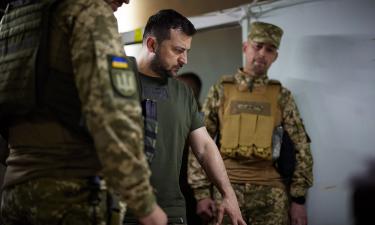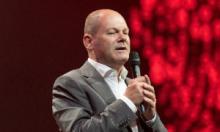Bloody explosion thunders in Turkey
A bomb explosion took place Tuesday in one of the Turkish capital's busiest commercial centers, killing six people and injuring about 80.
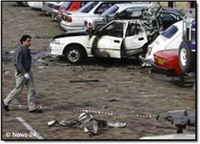
The blast outside one of the oldest shopping malls in Ankara hurled glass and other debris over a wide area. A body, covered in a white sheet, lay outside the building.
Prime Minister Recep Tayyip Erdogan said four Turks and one Pakistani were killed in the blast. Police said an injured person died later in a hospital, raising the death toll to six.
"Is it a suicide bomber or a parcel bomb? Technical teams are working on this," Erdogan told reporters after visiting the scene. "We have always said terror can strike anyone, anywhere. Although we have taken every precaution, we have experienced this incident."
Pakistani Embassy spokesman Abdul Majeed Niazi said eight Pakistanis were injured, but that there was no Pakistani fatality. It was unclear why his account conflicted with that of the prime minister.
Health Minister Recep Akdag said around 80 people were wounded, most of them only slightly.
Private NTV television, quoting police sources, said the bomb was made of plastic explosives, the type favored by separatist Kurdish rebels. Militant leftists and Islamic extremists also operate in Turkey.
There was no immediate claim of responsibility.
"Who feeds terrorist groups? Who's behind them? That's what we need to look at," said Gen. Yasar Buyukanit, chief of the military. He did not rule out further attacks, saying: "They could carry out such things in major cities."
Previously, Buyukanit has said Europe was not doing enough to prevent sympathizers of the Kurdish rebel group PKK from providing aid to the movement, deemed a terrorist organization by the United States and the European Union.
Television video shortly after the blast showed medics tending to the wounded, who were bloodied and with some of their clothes torn away, and carrying them to ambulances on stretchers.
"We were cleaning the windows when the pressure from the blast pushed us to the ground," said Murat Coskun, who owns a nearby shop that sells cell phones. "Everything was covered in dust. I could only hear people screaming."
Forensic teams collected evidence.
"The scene here is horrific," Mayor Melih Gokcek said.
The Ulus neighborhood where the blast occurred is the oldest part of Ankara. It is near museums and the old parliament house. The shopping mall that was damaged is called Anafartalar and sells mostly clothing and textiles.
The explosion occurred as the city hosted an international defense industry fair, with some 400 companies from dozens of countries displaying their goods.
In recent weeks, Turkey has endured political turmoil pitting the Islamic-leaning government against the military-backed secular opposition, which staged huge anti-government rallies. The ruling party's presidential candidate was forced to abandon his bid for the office, and early general elections were called for July 22.
On May 12, a bomb in the port city of Izmir killed one person and injured 14 others a day ahead of an anti-government demonstration that drew more than 1 million people. It was unclear whether the blast was linked to the rally.
In 2003, al-Qaida-linked suicide truck bombers in the Turkish city of Istanbul attacked two synagogues, the British Consulate and a British bank, killing 58 people.
In September, suspected Kurdish rebels set off a bomb at a bus stop in Turkey's largest majority Kurdish city of Diyarbakir, killing 10 people. A month earlier, a hard-line Kurdish militant group claimed responsibility for a bus bombing in the Mediterranean resort of Marmaris that injured 20 people, including 10 Britons.
There is growing impatience in Turkey over how to deal with Kurdish rebels, and the government has not ruled out military operations aimed at their bases in northern Iraq. The United States opposes Turkish military action in Iraq, fearing it would complicate U.S. efforts to restore stability there.
Subscribe to Pravda.Ru Telegram channel, Facebook, RSS!

